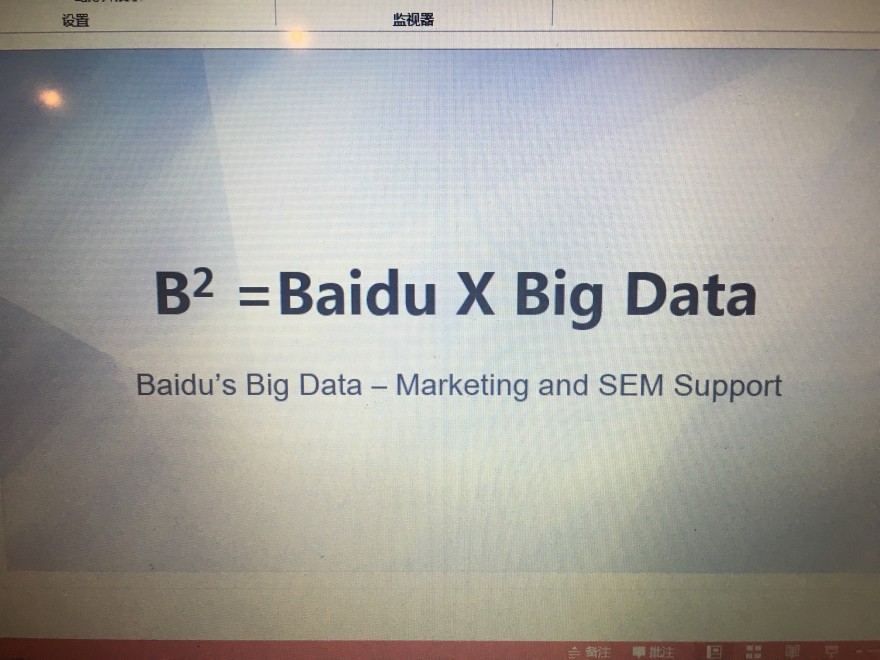A Cashless wind blowing in the Fashion world in China
Recently, Wechat Pay and the leading fashion retail group Inditex have reached agreement on collaboration . 7 brands of Inditex: Zara, Bershka, Pull and Bear, Massimo Dutti, Stradivarius, Oysho and Zara Home with around 600 offline shops in China mainland announced to access WeChat payment formally.
Since then, it will no longer be necessary for customers to bring cash while they are shopping in these stores. They can now pay by scanning QR code through WeChat payment, enjoying the ” no cash ” convenience in Fashion shopping.

By the beginning of 2017, the amount of purchases in fashion industry through WeChat Pay had attained a year-on-year growth of 9.5 times. The fashion industry became one of the most rapid growing industries. So far, except for Inditex, WeChat payment has also covered Lane Crawford, Longchamp, UNIQLO, H&M, GAP, Hot wind, Meters Bowne and etc.
At the same time, in this cooperate Inditex group, a new promotion activity has been carried out —— Random cashback + Cash coupons.
Activity Details :

- From June 10 to June 15, customers using WeChat Pay to pay more than 10 RMB per purchase in one of Inditex designated shops can get a random price cut up to 300RMB.( Each customer has maximum one chance of the price cut ) During the weekend ( June 10 to June 11) after 6pm, customers can also get one random red envelop bonus . ( Each customer has maximum one chance of getting the bonus each day during the weekend )
- From June 16 to June 19 , customers using WeChat Pay to pay more than 10RMB per purchase in one of the Inditex designated shops would have chances to win 5 RMB coupon. ( Each customer has maximum one chance of getting the coupon. Coupons’ valid duration is June 2- to July 3.
- The quota of price cut is 240,000. First come, first served.
- The quota of coupons is 80,000. 20,000 quotas for each day. First come, first served.
By outputting developed business solution to push forward the industry transformation, WeChat Pay will have more cooperation with more fashion brands in the future.
[divider style=”single” border=”small”]If you have any questions about selling in China, Contact us!!
10 Challenges On Chinese Future
Any approach to Chinese landscape ends falling into the same debate: Will China evolve or break over the next years?
Although experts do not agree (And neither do we!), in the team we believe it is important to name some of the most immediate challenges ahead for China.
Current challenges are also the challenges of the future
When we talk about China, no one agrees. The huge boost experienced by China in the last thirty years has not buried the doomsayers who year after year have sown doubts about the future of China. Faced with them there are some enthusiasts who proclaim that the next world leadership belongs to China. Who has the reason? Not everything is white, not everything is black. Both sides are right.

Reforms, Where to start? Ten points to keep in mind
China is characterized by the dynamism that has developed in recent years. In order to ensure the future growth of the country, Chinese authorities must address some issues of particular importance:
First, Local Government Debt:
Local and regional government debt have been a terrible headache for analysts. We would like to underline the explanation Nicholas Zhu, senior analyst at Moody’s, gave,
“For the local government direct debt, we believe the government is finding a handle by capping it at 16 trillion yuan ($2.45 trillion) overall and improving the structure by swapping some existing debt into bonds at lower cost and longer maturity.”
However, in recent times the central bank started to allow qualified individual investors to buy and sell the bonds through commercial banks.
Second, Reform State Companies:
The Government is attempting to reform the state-owned sector while continuing to maintain its currently control. To do this, some different attempts have been made, such as: mixed formulas, restructuring, mergers, open up protected service sectors to private and foreigners, them all focused on enhancing their competitiveness and autonomy on private-sector markets.
Third, Liberalize the Financial Sector:
Financial liberalization is a key in Chinese reform, and it is closely linked to the privatization phenomenon itself. Both reforms will be needed to maintain Chinese growth, and facilitate the creation of jobs and the reliably channels credit to companies. The success of economic reforms carried out, will be a determining point of stabilization or social destabilization, and are a sensitive issue in governmental action. As the country opens its doors further, as the former Australian ambassador to China, Geoff Raby said,
“Equally China will be more open to capital inflows.”
Fourth, Investment:
Investment in China is drived by Foreign Direct Investment, as a key which gives advantages to the supplier and also to the host. Moreover, is a thermometer of the future of the business, and China has already started to capitalize its benefits. At the same time, FDI depends on some key – factors:
- Capital Availability: China is already the world’s largest recipient of foreign capital.
- Competitiveness: Rests on the country’s capacity to develop its infrastructure, resource availability, productivity and workforce skills.
- Regulatory environment: A difficult legal doctrine and excessive regulation, have been a serious handicap for investment in China. Things are changing, but it is still far to be as it should be.
- Openness to trade –especially international one.
Fifth, Deflation:
To achieve the Chinese structural goals, it is a necessary condition that the country’s growth rate is maintained over 5 years above 6.5%. Moreover, in China Dollar strength prevents avoid closing 2016 with deflation, and has contributed to high capital outflows in recent years.
Sixth, Chinese Demand for Hard Commodities:
A very important point to consider for countries that produce raw materials as iron, copper or aluminum. Its prices will drop sharply as long as its demand will go slower. This expectation is opposed to food, which will keep increasing due to the growth of Chinese middle class.
Seventh, Manufacturing:
China´s export competitiveness are based on three main principles: low unit – labour costs and interested rated, and an undervalued yuan. Due to the paradigm shift, it is expected that China’s strength at this point has begun to crack; an opportunity for others countries after all!
Eighth, Innovation:
Over the past five years, China has promoted with great vehemence its innovative sector. The technical, economic and human development are impressive, especially its efforts in Science & Technological graduates. According to Mckingsey Global Institute,
“China must generate two to three percentage points of annual GDP growth through innovation, broadly defined. If it does, innovation could contribute much of the $3 trillion to $5 trillion a year to GDP by 2025.”
Nineth, Environment:
China lives in a permanent Environmental crises: air and water pollution, deforestation and desertification, biodiversity, high rates of cancer and the growth of a middle-class who is adopting a Western –style consumer patterns have become a huge problem for future. China needs to change the course of its current model. Therefore, he has embraced renewable energy.
Tenth, Consumption:
We cannot talk about Environment without mention Consumption. The sharp increase of in domestic consumer patterns and the Chinese middle-class prosperity, will need of a sustainable and growing consumer economy based on the need of big service sector reforms.

Companies must be ready. How to be competitive in China?
The rapid evolution of the world stage precludes long-term estimates. Having an updated database and the example of a specialized agency, is always a clear advantage in any approach to the market, but even more in China. It has never been enough for global business to know what is coming, but also knowing how to take advantage of every opportunity that arises in the market.
In search of a specialist Agency in the Chinese environment? Are you interested on Digital Marketing and Ecommerce?
New Online Advertising Rules in China
New online advertising regulation in China will impact all digital business with presence in China. Here we bring you an analysis overview to start adapting to the new trend in advertisement.
It would be after the death of a college student who took part in an experimental health treatment found in Baidu, when popular pressure would force the Government to begin an ads regulatory change.
The Internet Ad Interim Measures, a new regulation prompted by the State Administration for Industry and Commerce of China, went into effect in September 1st. Therefore, it arises from the Government’s claim by adopt new rules over online advertisement: email, paid searches, embedded links, images, and videos are already subject to the new law. Its aim is avoiding the spread of misleading advertisements on the Net, and correct the prevailing liberality so far.
The new online advertising regulations are expected to impact on Chinese Digital Marketing as a whole: social media, search engines, apps and electronic commerce in the country will have to move under the new guidelines.
A step closer to the uses and customs in Western advertisements
For the first time in China, the new measure features a specific definition of Internet advertising; often, foreigners suffer from a lack of legislative safety in China. Therefore, conceptualization is a step forward to define clearly not only the concept, but also its extension:
“Internet advertising is advertisements that directly or indirectly sell commercial goods or services through the websites, web pages, internet applications and other forms of Internet media including text, images, audio, video and etc.”
Moreover, the regulation comes to underline its main purpose:
“To protect the legitimate rights and interests of consumers, and promote the healthy development of the Internet advertising industry.”

In what fields are these changes applicable? What changes will take place after its implementation?
The regulation is particularly focused on a list of fields described below:
-Healthcare and medicine
-Food and beverage
The main measures to be starting to apply can be summarized as:
–First, the Law requires to place the word “advertisement” in a prominent position and clearly distinguishable at first sight.
–Second, every field subject of special regulation needs a previous review and an approval process by authorities.
–Third, online advertisements for prescription medicine is banned. A special measure in health products is also extended to medicines, pesticides or medical supplies.
–Fourth, tobacco online ads are also banned.
–Fifth, any paid search results, links or content must be clearly identified by the word “advertisement”.
–Sixth, users should not only have the choice to close an ad, but also this has to be easy to them.
–Seventh, paid links and contents must be clearly detailed at a glance.
–Eighth, any attached ad and/or promotional links to an email should have been allowed previously.
–Ninth, any misleading and/or false ad is considered illegal from now on.
Who is especially affected by the new regulation?
Under this measure, the biggest impact falls on the largest Internet companies in China. Baidu and Bing should apply new restrictions on ads; it should not be forgotten that, much of the incomes of Baidu, Weibo or Alibaba come advertising.

But also traditional Social Media must change. WeChat or Weibo offer paid content; as we mention before, pop-ups, ads or links should be first permitted, which will force companies to evolve the way advertising is offered to Chinese users. Seems marketers should start creating better ads, or contravening the prevailing legislation with all the penalties that that means.
There are plenty of creative ways to sell your services and products in China. In search of a Digital Marketing Agency?
How to Promote your Business in China
How does Chinese Market work? How can companies promote themselves without Facebook and Google? How do people survive under huge competition there?
China is -still- a mystery for foreigners. The country means a huge cake, but before entering the market you will need to answer to this and other questions. To make it easier to you, in 2 Open we have taken a brief look of the Chinese market and done a list of the most basic tips you should consider before landing in China.
Gone wrong? It can go much worse
When many companies started their business in China for the first time, the things they used quite a lot in local made no sense in China.
Ebay is one of the biggest e-commerce platforms around the world and a perfect example to explain the experiences many foreign companies face in China. Due to its leadership, the company assumed that its landing in China would be no much different to that experienced in other countries, so in the beginning they refused to establish a partnership with JD.com. The company soon realized there were no more choice but to cooperate with them.
What are the most common problems that foreign companies face in Chinese territory?
Foreign enterprises in China often fall into the same shortcomings we analyze below. Let´s see:
First, Always try to show their high-end enterprise images
Foreign enterprises always show their best face: high-quality services, responsible attitude, respect to the customers… and so on. But in China, price is the key and can always be the KPI which attract the customers’ sight immediately.
Second, Focus on high-end target audiences but ignore the rapid growth of China
When companies like Blueberry entered China, they set the target group to those corporate users. As the earliest and past No.1 smart phone, Blueberry had already been famous in China. But within 7 years (2006-2013), they retreated from China and closed their Chinese official website.
When Huawei set off their business, what they did was to set the target audiences as all people who want smart phone. Since the average income of Chinese people is increasing, so that more and more can afford a smart-phone. Huawei was right about its strategy.
Third, Copy the promotion strategy directly to China
Many foreign companies would prefer to make a wonderful advertisement, an amazing poster and advertise in the subway stations, supermarkets… and everywhere. But they always find out that the ROI is quite low, since they might only get 1 customer for a 100 RMB budget. Does it outweigh? We don´t think so.
In China, since the civil quality is still on a shallow level, what the customers care most is whether they are interested in, but not what is a good design. That is why when Taobao.com stepped out their first step, they even promoted on some illegal websites which had huge traffics every day.
Fourth, Think too much about customers but ignore what the customers are thinking about ICQ. The instant messaging software also failed in China!
The U.S. companies are always stricts on protecting the users’ privacy. With such a policy, users can’t find the chat record if they log in on another PC, since the software will not memorize or save these records in order to protect the privacy to the most degree.
Its counterpart in China, Ma Huateng, found out this fault which doesn’t fit the Chinese users’ requirement. In response he created QQ, which is based on the technology of ICQ and make this software become the most-used IMS in China.
Fifth, Rely too much on the Western promotion ways, companies do not want to do things directly
E-mail, Mail and SMS promotion require low budget and have huge audience quantity. Well, they do not make sense in China. For many Chinese people, it is absolutely offensive if they receive advertisement in these channels since they have watched and received too many advertisements already. Moreover, for most Chinese these all are considered private.
They don’t like to be bothered by anything they don’t even know. In China, what people prefer is face to face, no matter if it is for sales promotion or negotiation. The Chinese only trust the people in real life. That’s why when Zhou Hongyi took the responsibility of Yahoo China, he fired all employees who only did E-mail promotion but never visited the clients.

What should you do, then?
First, Pay attention to Chinese culture
Chinese culture is totally different comparing with the Western cultures. Different political systems, different History, different religious beliefs. Thus, the culture strike shows extremely seriously in China.
Your company should do its best to avoid the culture strike and assume their role. We suggest you yo have a look to Lancôme experience in China.
Second, Explore the Chinese consumer behaviour and preferences
Knowing the Chinese consumer behavior and their preferences make the difference. What are the KPIs to attract them? What they care the most? What they pay less attention to? What channels they prefer to get promotion information?
All these questions need to be taken into account when setting up the marketing strategy in China.
Third, Know the correct channels
Due to the firewall in China, many foreign websites (Google, YouTube, Facebook, Twitter, etc.) are not allowed in the China mainland. Thus, use Chinese sources.
Fourth, Speak that language
Chinese people still prefer to speak Chinese. So, when doing business with them, try Mandarin: it is always more than welcome.
There are still lots of thing we need to explore and learn about China. In search of an Ecommerce and Digital Marketing Agency?
This article has been edited by Paula Vicuña, from 2 Open.
Nutrexpa Experience in China: Business Tips
Nutrexpa was not only one of the first Western companies operating in China in the early eighties, but also a perfect example to explain the hurdles that any company faces in its landing to China.
Nutrexpa paved the way and others followed its footsteps. Its story is an example of tenacity and adaptability to a country that was not what it is today. Many of its experiences are likely to be applied to any company that considers China.
Keep reading!
Find the proper battle buddy. Be aware of market dynamics!
In the early eighties, it was impossible to land in the country without the assistance of a local partner and the Chinese authorities.
After over three years of negotiations between the company and the local authorities, the emergence of a suitable local partner –Li Bank-, contributed to the establishment of an alliance, and the subsequent creation of a Joint-Venture.
A tip! This first stage requires flexibility and guangxi. Negotiations with local authorities and the Chinese bureaucracy are not always easy -although is improving every day! -, and finding a proper partner can be difficult.
Do not lose your patience and keep working on building a suitable partnership. It´s worthy!

Sometimes in China, your product will turn into another
After inaugurating in 1990 its factory in Tianjin, Nutrexpa would focus on prospecting of its target market, and also in adaptive demands that China demanded of its product. There, Nutrexpa started producing soluble and powder cocoa drinks.
Nutrexpa had all the ballots to fail on its arrival in China
The biggest pitfall were the eating habits: no milk or cocoa were consumed in China.
How to overcome such a hurdle?
– First, the company took advantage of an extrinsic condition: in the early nineties, the Chinese Government launched a powerful awareness campaign about the importance of milk intake in children. So, stay tuned! Opportunities come and leave!
–Second, Nutrexpa made a big effort to get a closer approach to the taste of their potential customers. To do so, they devised some specific tastes to their products: strawberry, banana and vanilla. Adapt!
–Third, Nutrexpa invested huge amounts on nationwide coverage advertising campaigns –around € 10/12 million per year- , especially on television. This effort managed to position the brand as a product fully recognized in big cities but also among Tier 2 and Tier 3. Now replace TV and imagine the endless possibilities of digital marketing on advertising nowadays!
–And last but not least, the company decided to create a Chinese distinctive brand. It dropped its popular brand name –Cola Cao– to become GaoLeGao, whose literal meaning is tall and jolly.
Choosing GaoLeGao was a marketing tool by itself: the election of positive attributes in a children’s product, makes easier its choice to the detriment of other similar products.
Years later, the company would challenge itself over again with the introduction of Nocilla… in a country in which bread was not consumed.
An another tip! Adapt your products and services to the market. If the name of your brand, colors or labeling are inadequate, change them!
Also never forget registering the name of your brand in Chinese and in your own language! Product customization, labelling and marketing are crucial!

success is sometimes highly unexpected
Despite being widely accepted, the product never reached another audience than children. Neither GaoLeGao nor Nocilla were the most successful.
Surprisingly, Nutrexpa discovered that its Star-product in China was… Phoskitos! Its commercialization never fit in with major purposes of Nutrexpa; after almost thirty years, they took the decision of selling the company and leave China.

What can we learn from the experience of Nutrexpa in China?
When Nutrexpa came to China, there were no previous examples. Fortunately, we are in 2016 and your company has the advantage of landing in the country in the hands of an agency specialized in Chinese business development.
Visit us and boost your sales in this giant we call China!
How to use Tencent Penguin Intelligence in your approach to the Chinese market?
Are you looking for the latest news of Tech innovation in China?
The goal of this article is to shed some lights of why Penguin Intelligence is a work-tool to keep in mind on your approach to China.
Penguin Intelligence is the official data platform from Tencent Technology
Tencent Research Organization works such as a professional organization which publishes in-depth reports about the Chinese mobile ecosystem.
Penguin Intelligence performs research and advocacy concerning hot-topics. It also studies markets, trends and best emerging practices.
Their work is founded on a rigorous thorough understanding of every Industry Focus, Sector Dynamics, Case Studies, Data Analysis and Macro environment.
Penguin Intelligence is constantly optimizing the analytical model
Penguin Intelligence is your best choice if you want to figure out what is happening in Chinese Internet Industry. Unfortunately, their business analysis and reports are only available in Chinese for the moment.
Penguin Intelligence also counts with three original sub-columns:
- Penguin Investigation
- Penguin Analysis
- Penguin Portfolio
In addition, Penguin Intelligence includes an Open Platform, which is a huge cohesion of all wisdom from China technological business.
What will you find in Penguin Intelligence?
As we have mention above, Penguin Intelligence contains a full variety of reports, infographics and data.
There are more than thirty valuable Business research reports, hundreds of in-depth analysis reports that have been already published and the Platform keeps growing every day.
The influence of these reports / studies has touched up multiple areas of Internet and traditional industries.
Due to its importance, Penguin Intelligence currently enjoys high reputation and credibility in Governments and Enterprises.
To illustrate the kind of searches which can be done, from 2 OPEN we have compiled a brief list of some of the most striking examples that you can find on the Platform:
- In-depth reports and fresh data about Tencent ecosystem; WeChat public accounts: What type of articles get the most attention from readers?
- Many infographics and graphs about mobile ecosystem in China; iPhoneS sales in China
- Data about digital marketing customer behavior; Do customers prefer hongbao or discounts?
Relying on Tencent, Penguin Intelligence contains a large user base and massive data advantage of products in multiple fields:
- Social networking application: WeChat (Most-used application in China)
- Social networking service: Qzone, Tencent microblog, Tencent Video
- Instant messengers: QQ, QQ International
- Online payment system: TenPay (which is similar to Paypal)
- Cloud storage service: Tencent Weiyun
- Own search engine: Soso.com
- Media player: QQ player, QQ Music, KuGou Music, KuWo Music
- C2C auction site: paipai.com (now merged with JD.com)

The huge scale of Tencent Data is the cornerstone of Penguin Intelligence ability to mine and analyze data, and serving professional market insights and industry reports.
Do you want to discover a little more of Penguin Intelligence?
As a Digital Marketing and Sales Agency, from 2 OPEN we often suggest you to contact us for a deeper understanding of all knowledge Penguin hosts.
Do not forget to subscribe to our Newsletter to receive some special information about China!
This article has been edited by Paula Vicuña from 2 Open.
How to take advantage of the latest E Commerce revolution? U-Commerce trend
Nowadays, we all are very well aware of the importance of Ecommerce on current business.
E-Commerce has been a great revolution for companies and customers, helping the exchange of goods and services without geographical barriers via Internet.
With most of famous brands selling via e-Commerce and the development of B2B, B2C and C2C markets, the last revolution has come to stay: the Mobile Commerce or better known, M-Commerce.
But, What do we mean when we talk about M-Commerce?
The increase of the usage of smartphones and tablets and the growth of its capabilities, lead to a higher percentage of the population using technological devices to purchase their goods or services. According to the increase of the demand and in order to take advantage of this new trend, Companies have already identified the need to adapt their ways of selling to the portable devices.
China, the biggest consumer via E-Commerce country and a technologically advanced market, is a good example to put into consideration: the Retail and C2C ecommerce sales have grown from the 9% to the 55.5% since 2013.
This information show us that nowadays, most of the C2C Chinese customers prefer to use the mobile device than their PCs or laptops.

Omnichannel Marketing, What´s its purpose?
At the same time, to E-Commerce has joined a new feature: the existence of the multichannel approach to sales, or “Omnichannel”.
This channel is looking for the continuous shopping experience of each customer. The aim of the Omnichannel Marketing is offering a continuous experience to the user, independent from the device or channel chosen.
In practice, this leads to a complete integration between phones, tablets and computers and it requires the combination of an anthropological and technological strategy in approaching the users in a smarter way.
From the combination of all this, arises the U-Commerce concept.
What is U-Commerce or Ubiquitous Commerce?
If we simplify, we would say that we are talking about U-Commerce when E-Commerce is based in the customer experience.
The user must be in the center of all Companies’ strategies. Those Companies using U-Commerce must be able to provide personalized service to their clients from the information they get from mobile devices and PC-s.
The keys are: customizing and navigation experience created in cooperation with the User.

How is this possible?
It is obvious that the technological development is responsible for this change and makes necessary to pay attention to the internal customer databases.
Companies must try to find out common interests between potential clients who visit their EShops, considering each potential customer as unique and with their own preferences and priorities.
Efforts should be directed to avoid high rates of leads who finally give up navigating in the last purchasing phase, and reach around 60-70%.
This is the crucial reason for companies to invest their efforts and resources in understanding the customers and their behavior: to boost sales.
A lack of privacy: How companies use data?
U-Commerce uses personal information in order to provide a personalized service. A big number of customers feel disrespectful that a company can get their personal information and manage it as they want. Therefore, we must emphasize the benefits that the data can bring to the user and treat delicately the data we are able to collect.
Times are changing and the number of E-Commerce consumers is increasing exponentially and also the M-Commerce is growing very fast.
It’s important to face it and consider user’s needs, their preferences and desires. So companies must rechange strategies and adapt to the new eCommerce “revolution”.
Are you thinking about improving the user experience and exploit the advantages that the use of Online Marketing gives us?
Come to us, We are expecting you!
This article has been edited by Paula Vicuña, from 2 OPEN.
Big Data and Precise Marketing – Tips from Baidu
Nowadays everyone is talking about big data, but what exactly is big data? How can we use it to benefit our business in China?
As we all know, Baidu is the biggest, and most popular, Chinese search engine with coverage of approximately 95% of China’s population. It receives around 6 billion search queries per day. With their countless backstage data, Baidu decided to move forward into the big data area and try to convert it into a high-value business service.
Last week 2Open attended a seminar about Baidu’s big data and precision marketing. Here are some point that were discussed during the event.

What is big data?
Big data is all about predictions, math applied to large quantities of data in order to infer probabilities. The big data will provide us with the new ability to crunch a vast collection of information, analyze it instantly, and draw conclusions from it.
Big data can be used in a variety of business field: cross marketing, precision marketing, reference location, credit investigation, quantity investigation, disease prediction and travel prediction etc.
For instance, by using Baidu’s big data, we can find out the crowdedness of certain touristic attractions and the popularity of the travel itinerary in China. With the help of this data we would be able to improve our travel plans since we would be avoiding crowded destinations.
Big data for marketing?
In the past Baidu cooperated with a motor company (to protect the advertiser’s rights we will refer to this company as Company A).
First of all, Company A wanted to launch a new A0 level car to the market, but they had no idea what the new car’s selling point was, more importantly, how to handle the pre-marketing and publication campaign. They decided to work with Baidu and used their big data service.
Secondly, Baidu identified consumer’s emotional needs by mining social data, and exploring differentiation opportunities by scanning the perception of other competitors. With all of this data they decided to use “happiness” as the communication concept/selling point of the new car.
Finally, by studying consumer’s profiles, identifying target audiences, and understanding different age groups by analysing their lifestyle and engagement occasions. The new car’s main target audience resulted to be 23-45 males, in tier3, tier4 and tier5 instead of tier1 and tier2 cities. This turned out to be the most important consumption market.
For lifestyle occasions, Baidu chose readings, videos, movies, TV series and gaming as the main five labels for determining their target audience. Company A even designed a LOL (League Of Legends, one of the most famous online games) poster ads.
For engagement occasions, there are five stages before the final purchase. Baidu defines them as; category research, comparative study, trial, finding 4S stores, and financial plan. Then they give related suggestion to company A for every stage of the marketing strategy.

Baidu named its big data & marketing decision platform “Sinan”(http://sinan.Baidu.com/). This platform mainly provides nine functions: audience definition, brand recognition, interest insight, search behaviour, demographics, geographic, media preferences, multiple data merge, and media buying suggestion. With the help of a big data platform like this any marketing strategy will be much easier for a company.
Still wondering about how to improve your business in China? Try embracing big data now! Or… get in touch with us. Here at 2Open we are passionate about every project. Our team of specialists have the expertise and knowledge that your company needs to thrive in the Chinese market. If you have any questions or require any information about our services, please do not hesitate in contacting us, we will be more than happy to assist you.
This article was edited by Andres Arroyo Olson from 2Open.
2Open on Spanish radio: Business in China?
Recently, we were invited to a local Spanish radio program called “Onda Cero” in Cáceres City. Vicente Pozas, the host of the show, asked some interesting questions to our colleague David González regarding Digital Business in China. For a lot of people in Europe, China is a far away land with a different culture, different people, and different ways to make business. People are getting interested in China, it has had a huge economical growth in the past few years and interest of foreigners has grown accordingly.
The talk mainly focused on China’s development in certain technological areas, the business opportunities it offers, and the considerations that have to be taken into account if one should intent to do business in China. David González talked about the differences in population of major cities in both countries and the way e-commerce in China has surpassed any other country in the world. He also stressed the way the Chinese middle-class people have gained more purchasing power and how all of this can be translated into a broader potential market for any business.

After throwing out some interesting figures about China, he talked about failure and success cases that foreign companies have had when trying to enter the Chinese market, the limitations and the room for mistakes that exists in the country, and the complexity of making business with a Chinese businessperson.
Although the talk focused mainly on China and the way they make business, David got the opportunity to talk about 2Open, our business values, and the way we carry out every project with passion and commitment. The complexity and the obstacles that a business in China could present and how a company like 2Open can make the whole process a lot simpler and successful.
Here is the audio of the interview with David González on the Spanish radio show “Onda Cero”, sadly the audio file is only available in Spanish, but if you have a particular interest on it please leave a comment and we will post an English translation of it.
This article was edited by Andres Arroyo Olson from 2Open.










